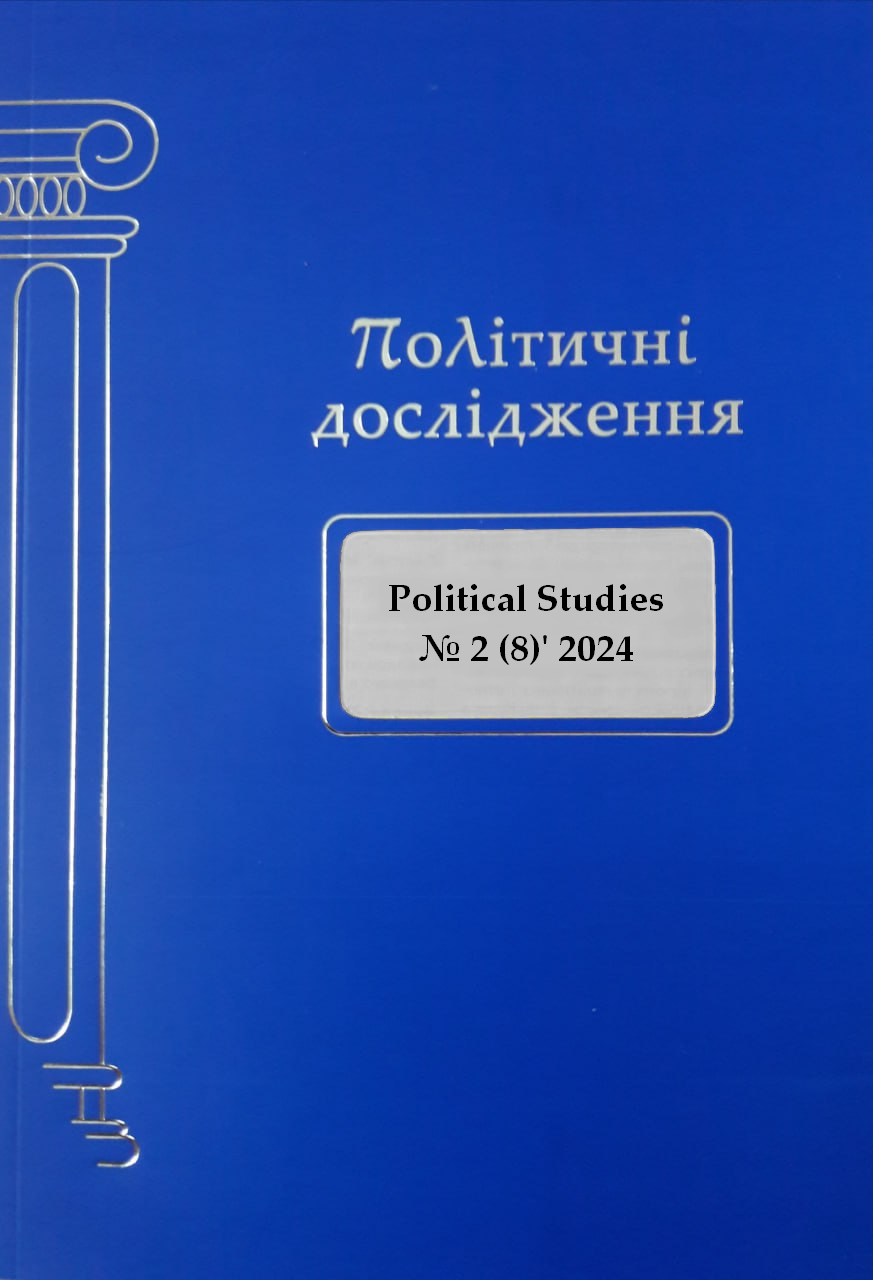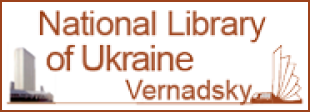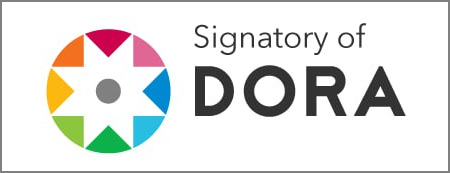Між самовіктимізацією і спільною пам’яттю: війна Росії проти України в російських незалежних медіа
Анотація
У статті аналізується, як російські незалежні медіа створюють комунікативну пам’ять про війну Росії проти України після повномасштабного вторгнення 24 лютого 2022 року. Попри засудження війни всіма медіа, найрейтинговіші з них ("Дощ", "Популярна політика", "Навальний LIVE" та
"Живий цвях") маргіналізують свідчення українських жертв, витісняючи їх російськими новинами. Автор звертає увагу на те, що деякі ("Медуза" та "Doxa") медіатизують війну, використовуючи свідчення українців. Вони актуалізують тим самим їхній біль і втрати для російської аудиторії. На мові memory studies цю ситуацію можна пояснити як дві конфліктуючі форми медіапам’яті. Перша знижує емпатію до українських жертв війни та сприяє самовіктимізації росіян, друга – відкриває простір для формування спільної пам’яті про війну. Показано, що хоча перша форма більш зручна для російської аудиторії незалежних медіа, вона дає можливість витиснути досвід жертв на периферію медіапам’яті, відсторонившись від насильства і страждань "інших". Конкуренція жертв, що виникає внаслідок цього, стає однією з причин публічних конфліктів між українцями та російськими емігрантами. Автор доходить висновку – щоб знизити ризик появи цих конфліктів, подолати самовіктимізацію та зробити розв’язану Росією війну ближчою до антивоєнно налаштованих росіян, незалежним медіа потрібно змінити звичні підходи до виробництва медіапам’яті. Необхідно приділити більше уваги українським свідченням, поклавши їх в основу спільної пам’яті про війну.
Посилання
Arestovich & Dmitrij Bykov: Vozmozhen li Mir Poludnya? (2022, Iyul' 10). [Arestovich & Dmitry Bykov: Is the World of Noon Possible?]. YouTube. http://surl.li/vjquyk [in Russian].
Atnashev, T., Vajzer, T., & Velizhev, M. (Red.). (2021). Dvesti let opyta: ot burzhuaznoj publichnoj sfery k rossijskim rezhimam publichnosti. [Two hundred years of experience: from the bourgeois public sphere to Russian publicity regimes]. V Nesovershennaya publichnaya sfera: Istoriya rezhimov publichnosti v Rossii (s. 5–81). Moskva: Novoe literaturnoe obozrenie [in Russian].
Bucha. Glavnyj simvol prestuplenij rossijskoj armii v Ukraine. (2022, Iyul' 19). [Bucha. The main symbol of Russian army crimes in Ukraine]. YouTube. http://surl.li/hpoini [in Russian].
Vahtin, N. & Firsov, B. (2017). "Sindrom publichnoj nemoty": istoriya i sovremennye praktiki publichnyh debatov v Rossii. ["Public mute syndrome": history and contemporary practices of public debate in Russia]. Moskva: Novoe literaturnoe obozrenie. [in Russian].
Vozvrashenie imen. (2024). [The return of names]. 29 oktyabrya. https://october29.ru/ [in Russian].
Voennyj dnevnik Anny Gin iz Har'kova. Chitayut zhurnalisty "Dozhdya". (2023, Yanvar' 2). [War diary of Anna Gin from Kharkov. Read by journalists of "Dozhd"]. YouTube. http://surl.li/iigzdg [in Russian].
Vokrug stoyala mertvaya tishina. Ya sela i nachala krichat'. (2022, Noyabr' 12). [There was dead silence all around. I sat up and started to scream]. Meduza. http://surl.li/nfzrti [in Russian].
Gatov, V. V. (2015). Postjournalist: Zhurnalistika posle "cifrovogo perehoda". [Postjournalist: Journalism after the "digital transition"]. Moskva: Izdatel'skie resheniya, 2015. [in Russian].
Dnevnye novosti ot Ivana Zhdanova. (2022, Sentyabr' 9). [Daily news from Ivan Zhdanov]. Telegram. http://surl.li/ctxukf [in Russian].
Kak vojna razdelila rodstvennikov iz Rossii i Ukrainy. (2023, Fevral' 11). [How the war divided relatives from Russia and Ukraine]. YouTube. http://surl.li/bqbjns [in Russian].
Kak Rossiya ukrala tysyachi detej iz Ukrainy i otdala ih na "perevospitanie". (2023, Fevral' 26). [How Russia stole thousands of children from Ukraine and gave them away for "re-education"]. YouTube. http://surl.li/jhqojl [in Russian].
Kashin, O. (2018, Oktyabr' 1). Gosduma zajmetsya onanizmom. Otkuda berutsya bessmyslennye novosti pro Anishenko i Pushkova. [The State Duma will take up onanism. Where does the senseless news about Anishchenko and Pushkov come from]. Republic. http://surl.li/lneyaa [in Russian].
"Mne bol'shinstvo rossiyan zhalko": kak ukrainskie bezhency zhivut v Gruzii i otnosyatsya k Rossii. (2023, Mart 20). ["I feel sorry for most Russians": how Ukrainian refugees live in Georgia and treat Russia]. YouTube. http://surl.li/xwpawu [in Russian].
Mobilizaciya vyhodit za ramki. Pod ugrozoj prizyva pochti vse muzhchiny starshe 18 let. (2022, Centyabr' 23). [Mobilization is out of bounds. Almost all men over the age of 18 are at risk of conscription]. YouTube. http://surl.li/vvtpih [in Russian].
Muar, E. (2023). De moi dіty? [Where are my children?]. Inker, 7, 33–54. [in Ukrainian].
"Nakinuli meshok i zabrali". Rasskaz zhitel'nicy Buchi, rodnyh kotoroj derzhat v rossijskom SIZO. (2022, Avgust 20). ["They put a sack on and took them away". Story of a Bucha resident]. YouTube. http://surl.li/tbvhsq [in Russian].
Ostavlenie Hersona i sezd narodnyh deputatov. (2022, Noyabr' 11). [The abandonment of Kherson and the Congress of People's Deputies]. Telegram. https://t.me/livegvozd/4474 [in Russian].
"Pap, u tebya est' maksimum pyat' dnej, chtoby nas zabrat'". (2022, Avgust 3). ["Dad, you have at most five days to pick us up"]. Meduza. http://surl.li/nfeaok [in Russian].
Pohorony chetyrehletnej Lizy, pogibshej pri raketnom udare po Vinnice. Fotografiya. (2022, Iyul' 17). [Funeral of four-year-old Liza, who died in a missile attack on Vinnitsa. Photo]. Meduza. http://surl.li/pjkahk [in Russian].
Pochemu u Rossii i Zapada ne poluchilos' druzhby? (2022, Noyabr' 19). [Why did Russia and the West fail to develop a friendship?]. Telegram. https://t.me/livegvozd/4592 [in Russian].
Press-konferenciya Il'i Yashina, Vladimira Kara-Murzy i Andreya Pivovarova posle osvobozhdeniya. (2024, Avgust 2). [Press conference of Ilya Yashin, Vladimir Kara-Murza and Andrei Pivovarov after his release]. YouTube. http://surl.li/jclnqg [in Russian].
Putinskaya vojna: ceny rastut, narod bedneet. (2022, Avgust 1). [Putin's war: prices rise, people get poorer]. Telegram. https://t.me/navalnylivechannel/4888 [in Russian].
Rech' Putina na Valdae / Ilon Mask kupil Tvitter. (2022, Oktyabr' 31). [Putin's speech at Valdai / Ilon Musk bought Twitter]. Telegram. https://t.me/livegvozd/4312 [in Russian].
"Tri imeni: pamyati zhertv rossijskogo vtorzheniya v Ukrainu". (2023, Oktyabr' 14). ["Three names: commemorating the victims of the Russian invasion of Ukraine"]. Telegram. https://t.me/doxajournal/34310 [in Russian].
Chto ya chuvstvoval? Da idi ty na ***! (2022, Noyabr' 10). [What did I feel? F*** you!]. Meduza. http://surl.li/xkuofr [in Russian].
Shul'man, E. M. Kommentarij k publikacii Olega Pshenichnogo. (2023, Avgust 18). [Commentary to Oleg Pshenichny's publication]. Facebook. http://surl.li/gmrovq [in Russian].
Ya ni razu ne strelyal. Tol'ko sidel s avtomatom, lovil miny. (2022, Noyabr' 10). [I never fired a shot. Just sat around with a machine gun, catching mines]. Meduza. http://surl.li/cjpiaw [in Russian].
"Ya uzhe smirilas' so smert'yu. Eshe bol'she boyus' russkoj zhizni". (2022, Maj 2). ["I've already come to terms with death. I'm even more afraid of Russian life"]. Meduza. http://surl.li/luntgi [in Russian].
Aivazovska, O. (2022, September 20). 40 Years of Wilderness for the "good russians". Ukrainska Pravda. http://surl.li/wbbrts
Assmann, A. (2006). Der lange Schatten der Vergangenheit: Erinnerungskultur und Geschichtspolitik. München: Beck.
Assmann, A. (2016). Formen des Vergessens. Göttingen: Wallstein.
Assmann, A. (2020). Das neue Unbehagen mit der Erinnerungskultur, 3. Aufl. München: Beck.
Baym, G. (2008). Infotainment / Ed. by W. Donsbach. The International Encyclopedia of Communication. Malden; Oxford; Carlton: Blackwell, 2276–2280.
Children’s Hospital Hit as Russian Strikes Kill Dozens In Ukraine. (2024, July 8). BBC. http://surl.li/hnosht
Chruschtschowa, N. (2024). Festrede anlässlich der Eröffnung der Salzburger Festspiele 2024. Salzburg: Salzburger Festspiele.
Commane, G., & Potton, R. (2018). Instagram and Auschwitz: A Critical Assessment of the Impact Social Media Has On Holocaust Representation. Holocaust Studies: A Journal of Culture and History, 25, 158–181.
Fraser, N. (1990). Rethinking the Public Sphere: A Contribution to the Critique of Actually Existing Democracy. Social Text, 25/26, 56–80.
Erll, A. (2017). Kollektives Gedächtnis und Erinnerungskulturen: Eine Einführung. Stuttgart: Springer.
Garde-Hansen, J. (2011). Media and Memory. Edinburgh: Edinburgh University Press, 2011.
Gorham, M. S. (2017). Humpty Dumpty and the Troll Factory: Varieties of Verbal Subversion on the Russian-Language Internet. Zeitschrift für Slavische Philologie, 73, 79–103.
How Many Ukrainians Have Close Relatives and Friends Who Were Injured / Killed by the Russian Invasion: Results of a Telephone Survey Conducted on May 26 – June 5, 2023. (2023, June 29). Kyiv International Institute of Sociology. http://surl.li/fxwzvh
Hrytsenko, H. (2022, March). Amplify Ukrainian Voices, not Russian. Krytyka. http://surl.li/slrmbf
In a Flash of Fire and Shrapnel, a Smiling 4-Year-Old’s Life Is Snuffed Out. (2022, July 15). New York Times. http://surl.li/sbpbzd
Ivan Golunov Arrest: Russian Reporter Is Freed after Public Outcry. (2019, June 11). BBC. http://surl.li/mbwrjj
Kaplan, A. (2011). Empathy and Trauma Culture: Imaging Catastrophe / Ed. by A. Coplan and P. Goldie. Empathy: Philosophical and Psychological Perspectives. Oxford; New York: Oxford University Press, 255–276.
Khlevnyuk, D. (2019). Narrowcasting Collective Memory Online: "Liking" Stalin in Russian Social Media. Media, Culture & Society, 41, 317–331.
Khromeychuk, O. (2022). The Death of a Soldier Told by His Sister. London: Monoray.
Koposov, N. (2018). Memory Wars, Memory Laws. The Politics of the Past in Europe and Russia. Cambridge: Cambridge University Press.
Kot, S., Mozolevska, A., & Polishchuk, O. (2024). Digital War Diaries: Witnessing the 2022 Russian War against Ukraine. Memory, Mind & Media, 3. https://doi:10.1017/mem.2024.11
Lin, H. (2022). Russian Cyber Operations in the Invasion of Ukraine. The Cyber Defense Review, 7, 31–46.
Margalit, A. (2002). The Ethics of Memory. Cambridge, MA; London: Harvard University Press, 2002.
Martin, D., Shapiro, J., & Nedashkovskaya, M. (2019). Recent Trends in Online Foreign Influence Effort. Journal of Information Warfare, 18, 15–48.
Momennejad, I., Duker, A., & Coman, A. (2019). Bridge Ties Bind Collective Memories. Nature Communications, 10. http://surl.li/pddzkd
Morozov, O. (2024). Das Justiz- und Strafverfolgungssystem als Erinnerungsakteure: Die Entstehung eines repressiven Erinnerungsregimes in Putins Russland. Geschichte in Wissenschaft und Unterricht, 75, H. 3/4, 189–203.
Neiger, M. (2020). Theorizing Media Memory: Six Elements Defining the Role of the Media in Shaping Collective Memory in the Digital Age. Sociology Compass, 14. http://surl.li/dkdnau
Neiger, M., Meyers, O., & Zandberg, E. (2011). On Media Memory: Collective Memory in a New Media Age. New York: Springer.
Nussbaum, M. (2001). Upheavals of Thought. The Intelligence of Emotions. Cambridge: Cambridge University Press.
Plokhy, S. (2023). The Russo-Ukrainian War: The Return of History. New York: Norton & Company.
Röger, M. (2009). News Media and Historical Remembrance: Reporting On the Expulsion of Germans in Polish and German Magazines / Ed. by A. Erll, A. Rigney. Mediation, Remediation, and the Dynamics of Cultural Memory. Berlin; New York: De Gruyter, 187–204.
Russia Tightens Legislation on "Foreign Agents". (2022, September 6). Deutsche Welle. http://surl.li/wuufpd
Russian TV Station in Latvia Loses Licence Over Ukraine War Coverage. (2022, December 8). The Guardian. http://surl.li/ofwamq
Sabrow, M. (2012). Held und Opfer. Zum Subjektwandel deutscher Vergangenheitsverständigung im 20. Jahrhundert / Hrsg. von M. Frölich, U. Jureit, C. Schneider. Das Unbehagen an der Erinnerung – Wandlungsprozesse im Gedenken an den Holocaust. Frankfurt a.M.: Brandes & Apsel, 37–54.
Schmidtgall, T. (2014). Traumatische Erfahrung im Mediengedächtnis: Zur Struktur und interkulturellen Rezeption fiktionaler Darstellungen des 11. September 2001 in Deutschland, Frankreich und Spanien. Würzburg: K&N.
Shuster, S. (2024, April 17). "Share My Rage". Read Yulia Navalnaya’s First Interview Since Her Husband’s Death in Prison. Time Magazine. http://surl.li/owvqex
Skalietska, Y. (2022). You Don’t Know What War Is: The Diary of a Young Girl From Ukraine. London: Bloomsbury Children’s Books.
"Sorry to Bother You". CNN Obtains Audio of Russians Calling Ukrainian Hotline. (2022, March 8). YouTube. http://surl.li/byvpfr
Stiazhkina, O. (2024). Ukraine, War, Love: A Donetsk Diary. Harvard: Harvard Ukrainian Research Institute.
Teenage Refugee From Chernihiv: I Saw My Mother Burn. (2022, March 30). Radio Free Europe. http://surl.li/hdkxgs
The Reckoning Project. (2024). https://www.thereckoningproject.com/
T4P’s database of war crimes: Statistical information. (2024). T4P. https://t4pua.org/ru/stats
Voices of War. (2024). Human Rights in Ukraine: The Information Portal of the Kharkiv Human Rights Protection Group. https://khpg.org/en/1309
Weiss-Wendt, A. (2020). Putin’s Russia and the Falsification of History: Reassessing Control over the Past. New York; London: Bloomsbury Academic.
Wertch, J. (2021). How Nations Remember: A Narrative Approach. New York: Oxford University Press.
Zhadan, S. (2022). Himmel über Charkiw: Nachrichten vom Überleben im Krieg. Berlin: Suhrkamp.
Zygar, M. (2022, August 21). Rache führt uns ins Mittelalter. Spiegel. http://surl.li/skffgb
18-Year-Old Ukrainian Raising Four Siblings After Their Mother Was Killed. (2022). CNN. http://surl.li/nfoiyq
##submission.downloads##
Опубліковано
Як цитувати
Номер
Розділ
Ліцензія
Авторське право (c) 2024 Морозов Олег

Ця робота ліцензується відповідно до Creative Commons Attribution 4.0 International License.
https://creativecommons.org/licenses/by/4.0/










